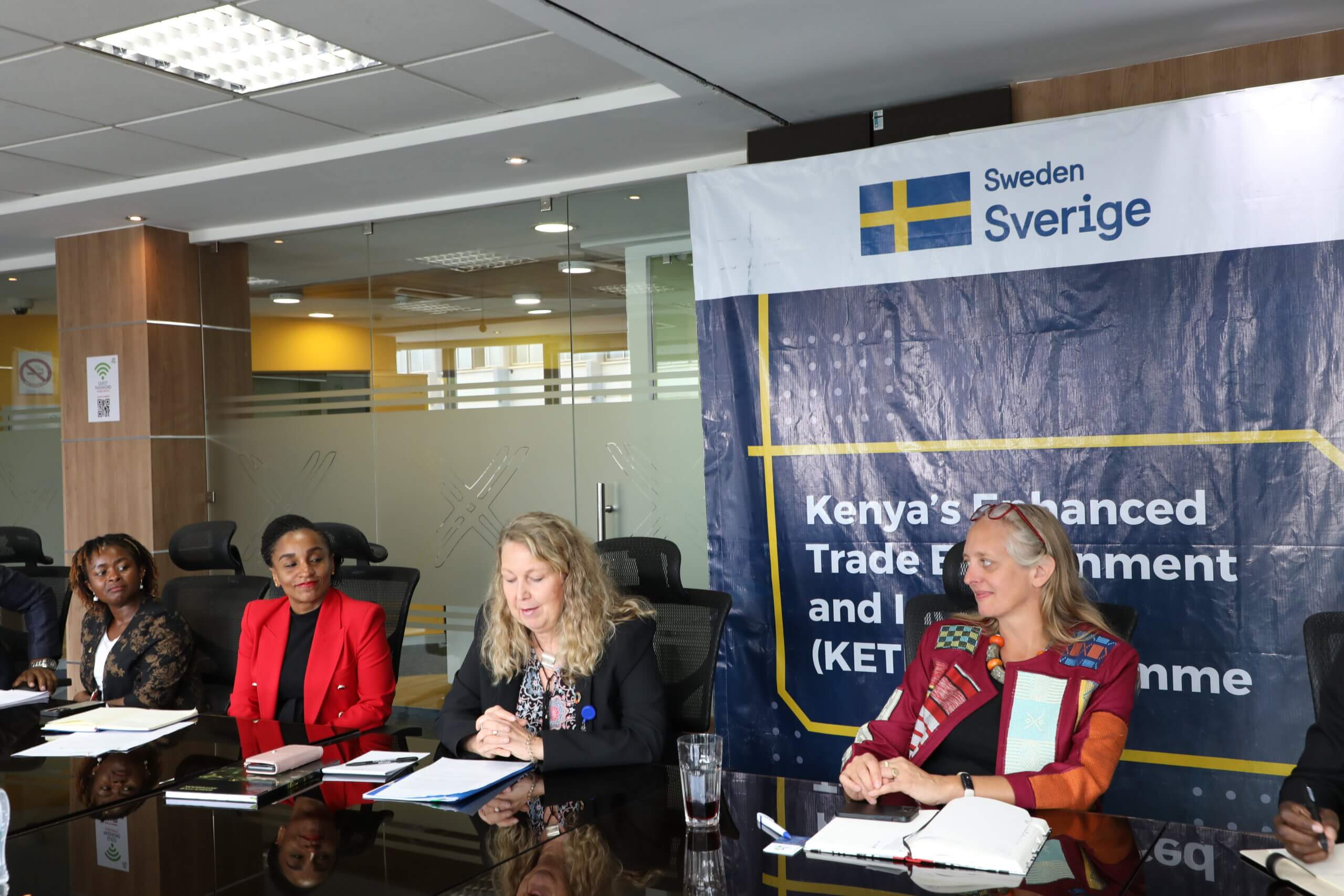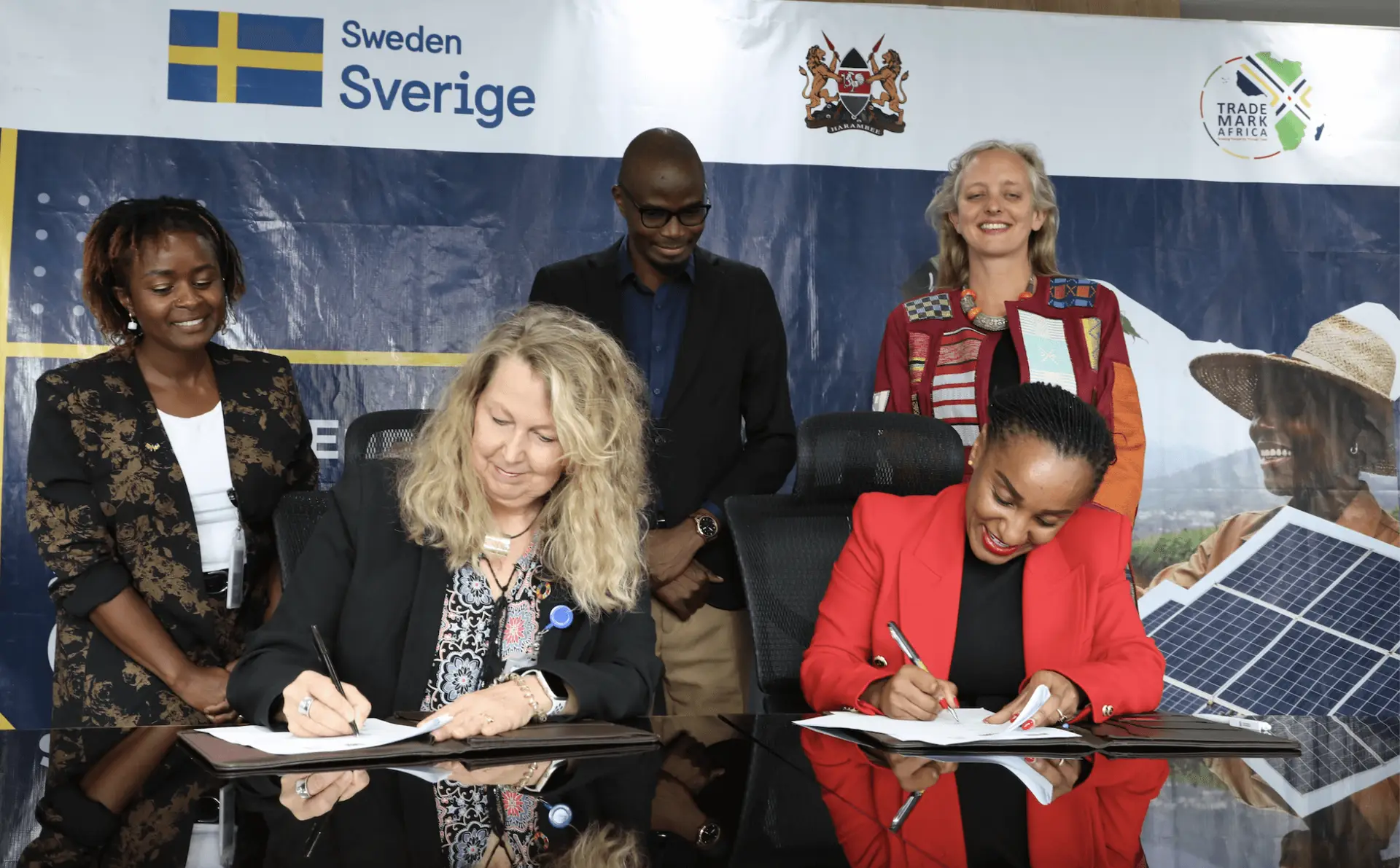Nairobi, Kenya, 29 May 2025 — Sweden has signed a $2.7 million agreement with TradeMark Africa to bolster sustainable and inclusive trade in Kenya. This two-year Kenya Enhanced Trade Environment and Inclusion (KETEI) programme will help Kenya achieve its national trade ambitions within various frameworks, such as the African Continental Free Trade Area (AfCFTA). The programme will do this by boosting port efficiency, enhancing the green trade infrastructure and policy landscape, and strengthening the resilience of women- and youth-owned SMEs participating in trade.
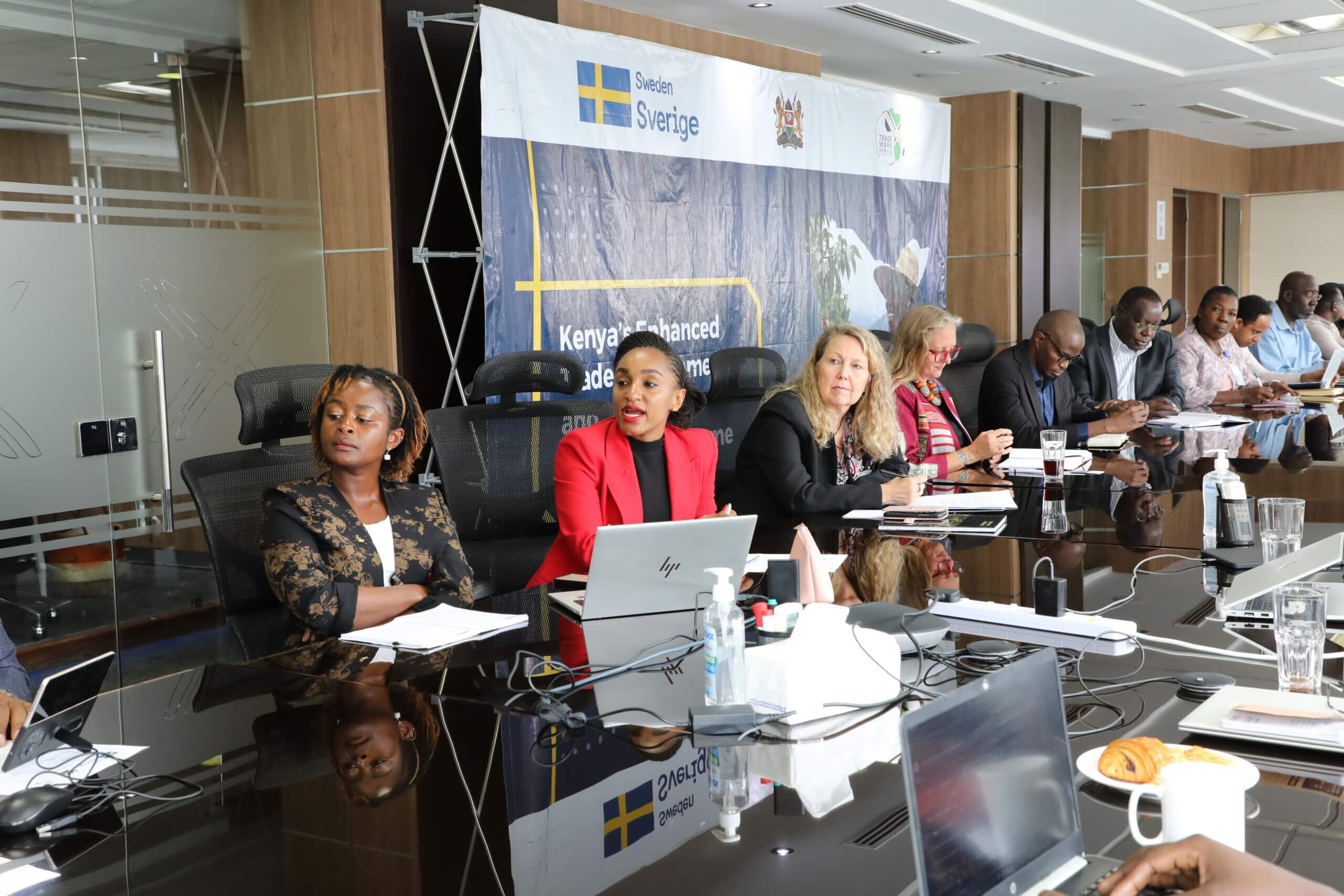
The KETEI programme aligns with TradeMark Africa’s broader strategy of fostering sustainable and resilient trade. It’s anticipated that supported MSMEs (60% women-led, 40% youth-led) will see a $3 million increase in export value, along with specialised support on climate-linked export regulations and standards. Furthermore, the programme expects to leverage at least $5 million in private investment towards green logistics infrastructure.
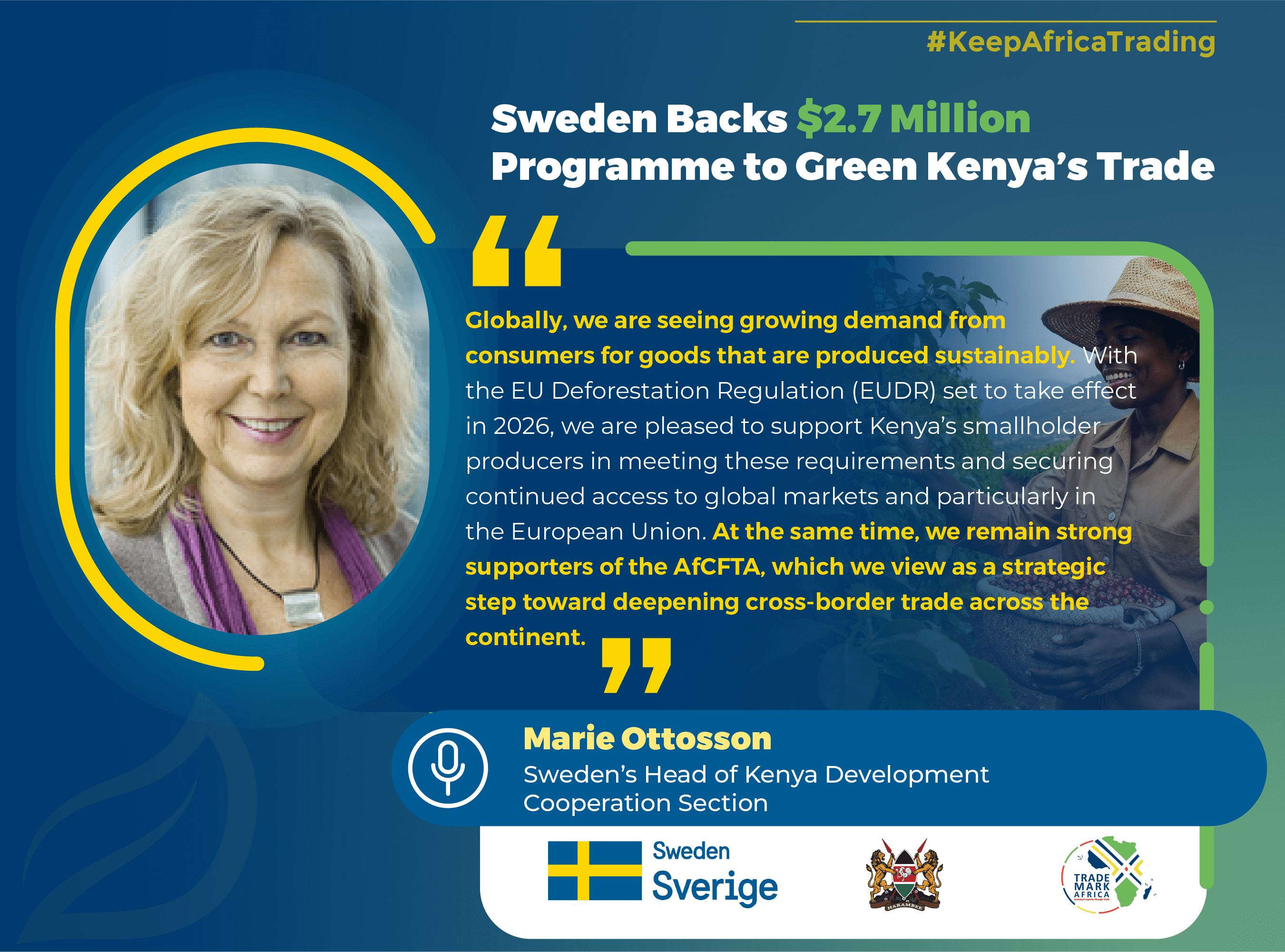
In 2023, Kenya exported coffee worth approximately $252.12 million, with the European Union (EU) accounting for 55% of this value. That same year, the EU Parliament passed the EUDR, aimed at reducing deforestation and forest degradation. The EUDR mandates that certain commodities, including coffee, linked to deforestation must not be placed on or exported to the EU market after 30th December 2025 for medium and large companies, and 30th June 2026 for small and micro businesses. This makes compliance with these regulations crucial for the success of Kenya’s coffee subsector, which heavily relies on the EU market.
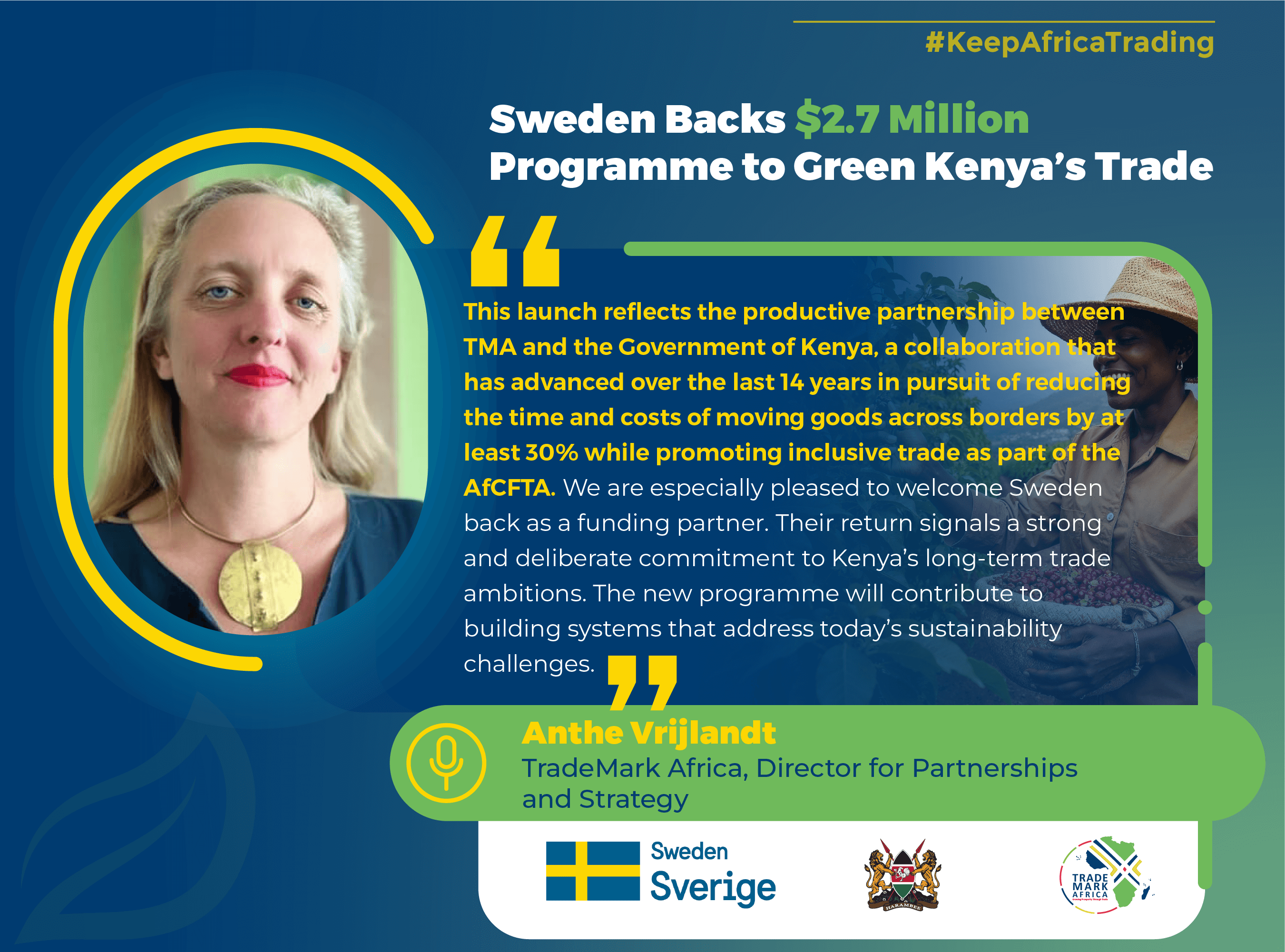
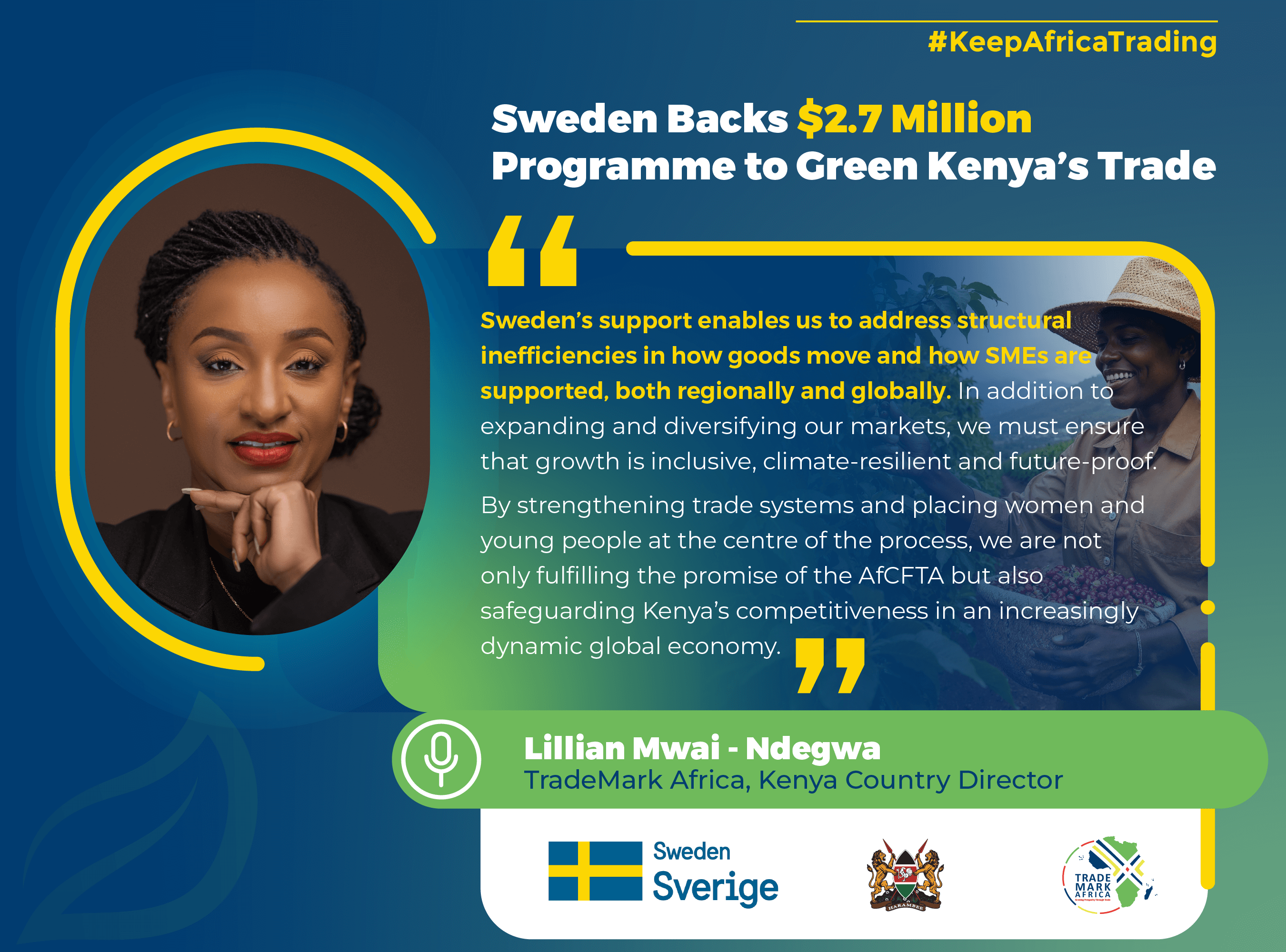
In 2022, Kenya launched its AfCFTA strategy, which aims to expand the country’s trade and investment within Africa, support structural transformation, and foster economic growth and sustainable development. This strategy is built on three core objectives: enhancing secure and efficient export trade through improved customs processes and infrastructure; promoting inclusivity in international trade by integrating MSMEs, women, and youth; and achieving these aims in ways that contribute to environmental sustainability, including the promotion of green trade practices.
